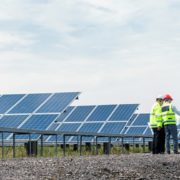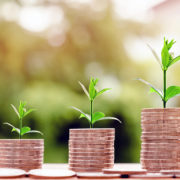Tag Archives | climate change
Climate change, Governance and public sector management
 Environment, Finance sector development
Environment, Finance sector development
 Climate change, Economics, Environment
Climate change, Economics, Environment
 Agriculture and natural resources, Governance and public sector management, Health, Poverty, Social development and protection
Agriculture and natural resources, Governance and public sector management, Health, Poverty, Social development and protection
 Climate change, Finance sector development
Climate change, Finance sector development
 Agriculture and natural resources, Climate change, Environment
Agriculture and natural resources, Climate change, Environment
 Climate change, Environment, Water
Climate change, Environment, Water
 Climate change, Finance sector development
Climate change, Finance sector development
 Agriculture and natural resources, Climate change
Agriculture and natural resources, Climate change
 Climate change, Economics, Environment, Finance sector development
Climate change, Economics, Environment, Finance sector development

Uniting the G7 and G20 to tackle climate change

The G7 and G20 recognize the paramount importance of innovation in steering economies toward a more sustainable future.
Central bank initiatives essential for developing effective sustainable finance markets

As many countries have begun to take greater climate action, central banks and financial regulators must also make greater efforts to foster more effective sustainable financial markets.
After COP26, developing Asia’s challenge is meeting ambitious climate commitments

Developing Asian countries, such as Indonesia, Kazakhstan, Thailand, and Viet Nam, have announced their net-zero carbon emission targets by mid-century at the United Nations Climate Change Conference (COP26) in Glasgow, Scotland, and financing climate change mitigation has been at the forefront of discussions for making ambitious climate action a reality.
Rebooting food systems to achieve the unfinished agenda of global food security

Food insecurity continues to be a pressing issue worldwide, despite scientific innovation and technological advancements in agriculture. Therefore, food security continues to be at the center of the global development agenda. The burgeoning demand for food due to exponential growth in the world’s population and the mismatch between demand and supply due to factors such as climate change, loss of soil fertility, land degradation, water scarcity, food loss and waste, and inefficient distribution systems, have exacerbated the problem of food insecurity.
Which financing sources matter for private investment in renewable energy in Asia?

The mobilization of climate finance is critical for limiting global warming to within 1.5°C and preventing catastrophic climate change (IPCC 2018). Annual green investments totaling $1.5 trillion are needed (United Nations 2017). Despite the falling cost of renewable energy technologies, energy investments remain dominated by investments in fossil fuels. In Asia and the Pacific, annual investments fell after 2017 and until 2020 remained below the 2017 level.
Unraveling the linkages between agriculture and climate change

The connection between climate change and agriculture (both crops and livestock) is complex. On the one hand, agriculture is adversely affected by climate change (Aryal et al. 2020a; Lobell et al. 2011), but on the other hand, it is also one of the major factors exacerbating climate change (Smith et al. 2008; Aryal et al. 2020b). Climate-smart agriculture (CSA) could play a crucial role in reducing GHG emissions and mitigating the adverse effects of climate change.
Climate change impacts in Asia are all essentially a water story

Global climate change caused by human activities will continue to be catastrophic for humanity. In particular, climate change is having serious impacts on the world’s water systems (United Nations 2020), and changes in these systems can have an enormous impact on people’s lives. This is because water plays a critical role in the very existence of all forms of life on earth as the foundation of human well-being and prosperity (Asian Development Bank 2020) and a source of life and livelihoods.
Revisiting green bond market development in Viet Nam

Green bonds (GBs) are being used around the world as a financial tool for raising capital for projects that can benefit the environment (World Bank 2019). The money raised by GB issuances can fund investment in programs that enhance adaptation and mitigate the effects of climate change, such as projects for clean energy, public transport, and clean water. The GB concept was proposed by the World Bank in its Strategic Framework on Development and Climate Change in 2008 to help countries around the world raise capital for strategies for solving the problems of air pollution and global climate change (Trang 2015).
Autonomous adaptation: Community approaches to coping with climate change

Human activity is accelerating climate change, and those most at risk are vulnerable populations in developing countries that are already suffering from chronic poverty. These countries also tend to be ones that contribute only negligibly to climate change. The changing climate is waiting for no one—most of us have already experienced, read, or researched its impacts, and scientists have gravely warned of the consequences in the form of wildfires, droughts, floods, and landslides, among others.
Exploring the link between climate change and sovereign risk

Climate change can have a material impact on sovereign risk through direct and indirect effects on public finances. In addition, climate change raises the cost of capital in climate vulnerable countries and threatens debt sustainability. Governments must climate-proof their economies and public finances or potentially face an ever-worsening spiral of climate vulnerability and unsustainable debt burdens.


Search
Subscribe / Connect to Asia Pathways
Subjects
- Accelerating Progress in Gender Equality
- Addressing Remaining Poverty and Reducing Inequality
- Agriculture and natural resources
- Capacity development
- Climate change
- Economics
- Education
- Energy
- Environment
- Finance and Innovation
- Finance sector development
- Gender
- Globalization and Economic Stability
- Governance and public sector management
- Health
- Industry and trade
- Information and Communications Technology
- Infrastructure
- Making Cities More Livable
- Miscellaneous
- Population
- Poverty
- Private sector development
- Regional cooperation and integration
- Sanitation
- Social development and protection
- Strengthening Governance and Institutional Capacity
- Subjects
- Transport
- Uncategorized
- Urban development
- Video Blog
- Water
Recent Posts
- From Crisis to Resilience: The Evolution of the Banking Sector in Asia and the Pacific
- Tariffs on the Table: What Could Be Asia’s Next Move?
- Investing in Childcare a Win for Women and the Economy
- Flush and Flourish: Upgraded Toilets Can Transform Lives in Rural Asia
- New Ways for Climate Finance and Development in Asia and the Pacific




Recent Comments